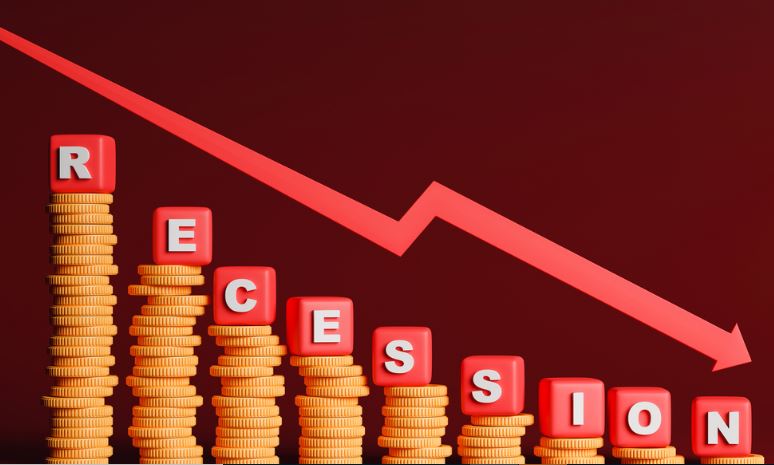
Developing nations, Kenya included, face a "perfect storm" of worsening external financial conditions, unsustainable debt and weakening domestic growth as the global recession becomes more likely.
A global outlook report released late Wednesday by the United Nations Conference on Trade and Development (UNCTAD) warns that the world economy is on a recessionary trajectory, driven by escalating trade tensions and persistent uncertainty.
“Global growth is projected to slow to 2.3 per cent in 2025, placing the world economy on a recessionary path,’’ the report says.
This will be the lowest growth in over two decades, except in 2020 when the Covid-19 pandemic pushed the World into negative growth margins of three per cent.
It cites mounting threats, including trade policy shocks, financial volatility and a surge in uncertainty, as some of the risks derailing the global outlook.
Although Africa’s economy is expected to expand by 3.6 per cent compared to last year's 2.9 per cent forecast, UNCTAD says that the overall growth for developing nations will slow by 10 basis points to 4.1 per cent.
Rich nations are also expected to suffer the impact of slow economic growth, with development expected to drop by 80 basis points from 1.8 per cent.
According to the UN trade body, the recent tariff wars are disrupting supply chains and undermining predictability.
“Trade policy uncertainty is at a historical high, and this is already translating into delayed investment decisions and reduced hiring.”
Early this month, the US president, Donald Trump, slapped countries with a reciprocal 10 per cent baseline tariff on all goods shipped to the country, with some going higher, citing objectives to revitalise domestic manufacturing and ensure fair trade practices.
Although he announced a three-month pause on all the reciprocal tariffs a week later, except China, the impact has hit the global market hard, if volatilities in the foreign exchange and tumbling of major stock exchanges are anything to go by.
The report is coming at a time global economies are struggling with the debt crisis, with outstanding government and corporate bonds globally exceeding $100 trillion last year, with rising interest costs leaving borrowers facing tough choices and needing to prioritise productive investments.
Between 2021 and 2024, interest costs as a share of output rose from the lowest to the highest in the last 20 years.
According to the Organisation for Economic Co-operation and Development (OECD), Spending by governments on interest payments reached 3.3 per cent of the Gross Domestic Product (GDP).
Debt-to-GDP to in at least two-thirds of developing countries have hit over 70 per cent, with interest payments taking more than 30 per cent of the total budget for the upcoming financial year.
In Kenya, the total public debt hit Sh11.2 trillion or 72 per cent of GDP in January and the country is expected to spend Sh1.3 trillion of its ambitious Sh4.3 trillion spending plan for the financial year starting July 1.
Apart from trade war and high debt, poor and developing nations are facing a cash crunch as donors cut assistance. This is worsened by the latest foreign support cut by the US.
Although the exact size and scale of these changes are yet to be determined, and the impact of the reductions is likely to entail profound consequences for many vulnerable countries.
Early estimates point to a decline of at least 18 per cent from the major donors between 2023 and 2025.
The cuts announced come on top of a declining trend in ODA to developing countries, both in absolute terms and as a share of the total. These flows fell to $160 billion (Sh20.3 trillion) in 2023 from the 2020 highs of almost $175 billion (Sh22.7 trillion), even as total global levels of ODA have risen.
UNCTAD advises that the volatile economic landscape calls for agile, adaptive measures to navigate the growing vagaries of international trade.
“Addressing these uncertainties requires countries that recognise the mutual benefits of international trade to maintain coordinated efforts in fostering a stable and predictable trading environment.”
These uncertainties will be top of the agenda at the Spring Meetings starting today in Washington, DC, where the International Monetary Fund boss Kristalina Georgieva is expected to give a curtain raiser speech at 1700 hours East African Time.
She is expected to provide an overview of the outlook for the global economy and discuss policy priorities in the months ahead.
The Kenyan delegation, led by top National Treasury officials, will be leaving the country today for Washington, DC, where they are expected to, among other things, finalise negotiations with the IMF on a new precautionary facility.
This is after the Fund agreed to halt the ninth review for the previous arrangement worth $2.34 billion (Sh303.5 billion) advanced in 2021.
The National Treasury PS Chris Kiptoo had not responded to our inquiries on other agendas likely to be advanced at the annual spring meetings by the time of going to press.









